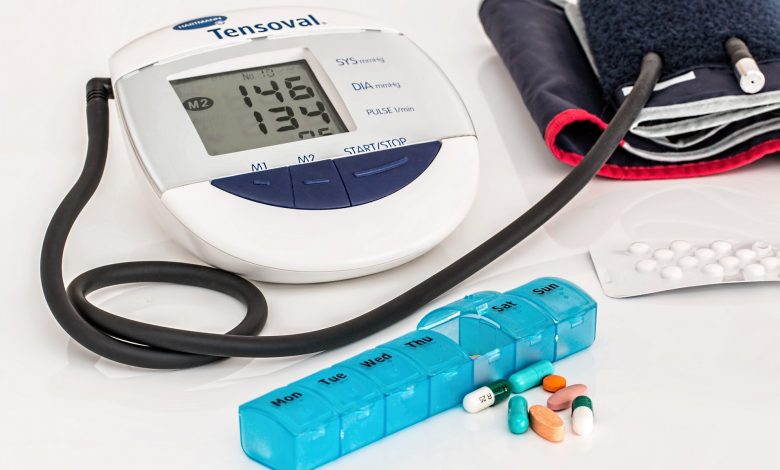Should I Get a Medical Credit Card or an HSA/FSA?

A medical credit card gives patients the opportunity to manage their money and build credit when they pay for health care costs. Meanwhile, medical savings account rules allow you to deduct deposits and expenditures from your taxes. Examples of those include a health savings account (HSA) and a flexible spending account (FSA). Yet which one should you choose?
Both of those options (credit card and an HSA/FSA) offer very desirable advantages. However, before consumers make a decision, they must first determine if they are eligible for a medical credit card, savings fund, or both/neither. Similarly, your FICO score and annual HSA/FSA deposit limits will impact how much money you could qualify for. Patients should weigh these amounts against their yearly medical costs. Otherwise, they might end up with too much or too little in health care funds.
When you make a choice, some key elements can ensure that you end up with the most suitable payment method. After all, a carefully calculated decision will yield fruitful results. To clarify, your health care finances will be organized and taxes are going to be relatively easy. Generating investment profits (through an HSA) and building your FICO score make the right choice even more beneficial.
Medical Costs: Your Savings, Credit, and Coverage
The amount of money that you and your family spend on health care should determine whether a medical credit card or savings account is more suitable. This is because HSAs and FSAs have annual contribution limits. Equally as important is your credit because it defines how much money you can qualify for.
Medical Savings Account Rules, Requirements, and Limits
HSAs and FSAs both have a maximum annual deposit amount. To clarify, if your medical costs exceed this limit, you may want to find an additional way to pay for them. For the 2019 tax year, individuals were only allowed to contribute $3,500 or less into an HSA. The maximum deposit for joint accounts was $7,000.
Those who are older than 55 years of age can deposit an additional $1,000, whether its an individual or spousal HSA. For instance, a single 55-year-old can contribute up to $4,500 per year. Married couples (within the same age group) have an $8,000 cap. Seniors and older consumers enjoy further health savings because they may have more medical needs than younger patients.
Individual and joint account holders, regardless of their age, could only put $2,750 and $5,500 towards their FSAs, respectively. Towards the end of every year, the IRS slightly adjusts these numbers to account for inflation. That is to say, during 2020, both individual and joint FSA/HSA holders may contribute slightly more than they did in 2019.

Above all else, medical savings account rules require you to have a qualifying health insurance plan. Otherwise, your household isn’t eligible for an HSA or to make deposits towards an existing account. In other words, HSAs are designed for patients that have a high deductible. For individuals, it must be $1,350 or more. A qualifying family insurance plan has a minimum annual deductible of $2,700.
Is a Medical Credit Card a Good Alternative?
Based on these medical savings account rules, your health care expenses could be too much or too little when compared to the requirements. If they exceed the maximum deposit limits, then an additional (or alternative) way to pay for medical costs is important. Similarly, you may benefit more from a medical credit card in comparison to an HSA/FSA.
However, this largely depends on your FICO score. As an example, let’s assume that an HSA/FSA doesn’t cover all of your health care expenses. In such cases, consumers have two options. Firstly, they could use a medical credit card to cover the rest of the costs. Secondly (and alternatively), they may apply for a large balance to take care of the entire amount.
The most suitable choice revolves around your credit score. Consumers who can qualify for enough funding might prefer to pay their bills in full through a medical credit card. This makes things simpler, especially when the patient can afford the monthly payments.
Equally as important, if your FICO score only earns you a limited credit balance, it could suffice when combined with an HSA or FSA. If this isn’t an option (i.e. you have a low FICO score), then a regular savings fund could replace the medical credit card. Yet what if your health insurance plan doesn’t meet the medical savings account rules and minimum deductible requirements?
Needless to say, since your deductible/out of pocket expenses are lower, a relatively small credit amount could take care of your health care bills. This is because your medical expenses aren’t complex or above average. Therefore, even when a patient’s FICO score is less than ideal, they will likely qualify for a credit card balance that satisfies their needs.
Taxes and Your Health
When you evaluate the pros and cons of a medical credit card vs. HSA/FSA, your taxes come into play. Consumers who deposit money into an HSA may deduct the amount from their taxable income. Equally as important, when account holders use their HSA to pay for medical costs, the amount is not taxed, either. This includes any profits or gains from investments.
Above all else, HSAs help consumers who want to move to a lower tax bracket. For example, a family of two makes $80,000 per year and owe 22% of their income in taxes. However, if they earned about $77,000 or less, the household’s tax rate drops to 12%. During the same year, the said family deposited $5,000 into an HSA. Thanks to the medical savings account rules, they may deduct the HSA contribution from their taxable income. As a result, the family’s earnings become $75,000 and they move to the 12% tax bracket.
In general, all health care expenses are deductible, regardless of whether consumers use an HSA or a medical credit card. Yet HSAs give account holders more flexibility in terms of when they may claim these deductions. In our above example, the family could deposit the funds during the tax year or, alternatively, wait until the upcoming one. This depends on when they plan to take advantage of the deduction. A medical card card, on the other hand, only allows you to utilize these tax benefits when you spend the money.
Making a Choice
Both HSAs/FSAs and medical credit cards come with their own positive aspects and shortcomings. Firstly, your credit score and annual insurance deductible determine whether you can qualify for a line of credit, health savings account, or both. Secondly, your medical expenses should define when an HSA, medical credit card, or a combination of them suits your need.

Lastly, but certainly not least, consider how each of these options impacts your taxes. An HSA or FSA allows you to flexibly deduct deposits and expenses, alike. A medical credit card, meanwhile, only lets you claim health care costs when you spend the money.
When patients carefully examine these factors, they will certainly end up with more than what they bargained for. In short, an informed consumer can easily cover health care costs, save money on taxes, and, at the same time, grow their credit score and/or investment funds.



